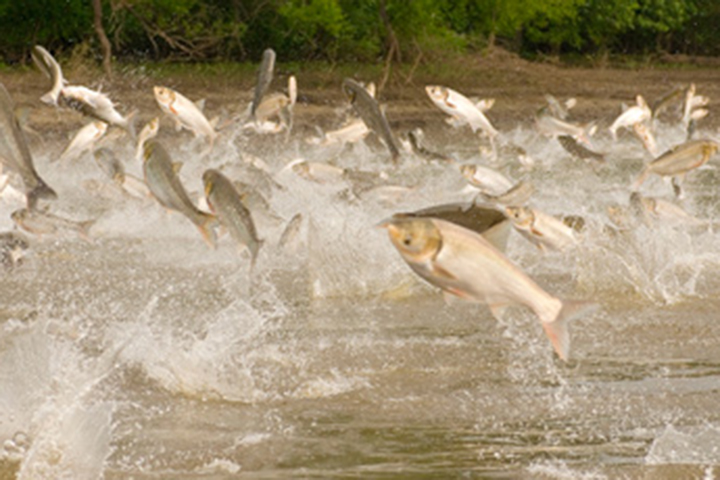The Asian carp is destroying the Midwest rivers’ ecosystem, threatening the Great Lakes, sparking lawsuits between governmental agencies, and injuring fishermen by knocking them out of boats.
Geology alum Bill Bolen ’80 is working to tackle the species. After graduating, Bolen worked as an oil exploration geologist in Texas before moving to Chicago and beginning an environmental career as a private firm consultant.
“I conducted mostly hazardous waste investigations, landfill investigations, and a lot of property assessments for contamination,” said Bolen, who joined the U.S. Environmental Protection Agency’s Superfund Program in 1987.
He rose through the agency to become a senior advisor and regular correspondent with the White House. He obtained one of the highest profile positions in his regional office—emergency response program manager—before transitioning to the Great Lakes National Program Office.
“I wanted to apply my rapid response training to help stop invasive species,” he said. That’s exactly his goal with the Asian carp, which has already devastated the ecosystem in several river ways. Breeding rapidly, the fish eats all the native species’ food sources in sight. If it were to enter the Great Lakes, the damage could be irreversible.
“I’m primarily responsible for planning, coordinating, budgeting, tracking, and monitoring operational implantation activities for all Asian carp activities for local, state, and federal agencies,” Bolen explained.
The Army Corps of Engineers has constructed electric barriers between the Mississippi River basin and Lake Michigan. Construction on the third barrier began last fall with hopes of adding another engineering barrier to stop the carps’ progress.
Commercial fishermen are helping as well. They are employed by Illinois to use nets to pull Asian carp out from beneath the barriers. A Chinese company imports 50 million pounds of carp fillets annually.

